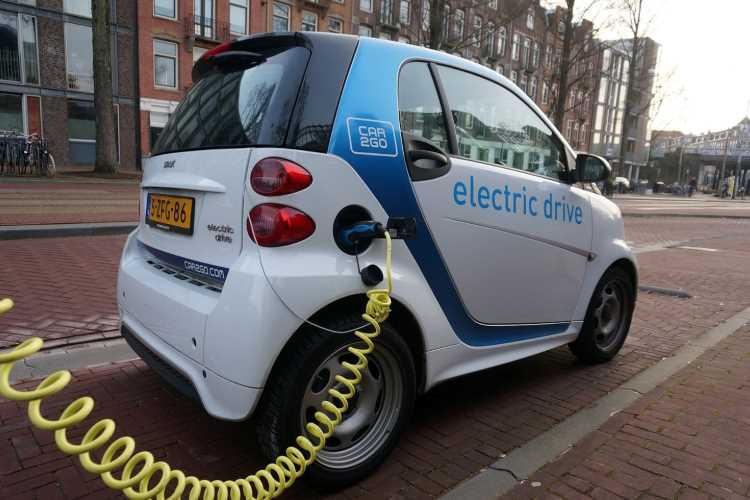
The passenger EV market is heating up in India with the entry of newer companies that seek to disrupt the market dominated by traditional carmakers. BluSmart Mobility, is an Indian ride-sharing company based in Gurugram, is entering the electric car market with a competitively priced car that will give the current market leaders Tata Motors, Mahindra and Mahindra, Hyundai, and MG Motor a run for their money.
BluSmart will soon announce an electric car, expected to be priced around Rs 6 lakh, Anmol Singh Jaggi, co-founder of the ride-sharing company said at the India Sustainability Summit 2023 organised by Policy Circle. Jaggi said there is a huge demand-supply gap in the electric car market and those brands which are available in the market are not affordable.
READ | Explained: Multidimensional Poverty Index helps India’s efforts to address deprivation
BluSmart, a startup which owns and operates an all-electric vehicle fleet, has acquired a United States-based company to power its manufacturing ambitions. The production of the car is under way and BluSmart will start the trial run next month. The car is not expected to be launched under the BluSmart brand.
Blusmart’s vision
In an interaction with senior journalist Yatish Rajawat, Jaggi said BluSmart believes that all businesses should be in the clean and green space. While the focus is on sustainability, going 100% sustainable is not possible at present, he said adding that it is the matter of doing slightly better than others.
Carbon fuel-based vehicles are one of the largest sources of air pollution in the world and sustainable transport is the topmost priority of policymakers. While EVs are being seen as a holy grail for reducing carbon emissions, industry insiders have regularly reiterated that EVs are not completely sustainable. The government has incentivised the production of the electric vehicles with schemes such as FAME and FAME 2 that offer subsidies to companies for producing electric vehicles in the country.
EV market in India
The electric vehicles market is growing exponentially in India and a growth rate of 90% is expected in the coming years. This can be attributed to government incentives, high fuel prices, environmental awareness, and improvements in technology. The market share of EVs is insignificant at present, and is projected to reach 10% in 2027.
The largest players in the electric car market in India are Tata Motors, Mahindra & Mahindra, Hyundai and MG Motor. These manufacturers have taken significant steps in EV development, introducing new models at regular intervals to attract buyers. The passenger EV market is heating up in India with the entry of newer companies that seek to disrupt the market dominated by traditional carmakers. BluSmart Mobility will give the market leaders a run for their money.
However, there are several challenges to India becoming a production hub for EVs. These are:
Poor charging infrastructure: India needs to invest heavily in the development of charging infrastructure to make electric vehicles more accessible to consumers. EV players such as BluSmart are investing in expanding the charging network.
Range anxiety: Many consumers are concerned about the range of electric vehicles. They are worried about running out of power before reaching their destination.
High upfront cost: Electric vehicles are far more expensive than petrol or diesel vehicles, which remains a barrier to EV adoption for many consumers.
The government needs to roll out right policies and incentives to overcome these hurdles. It can invest in developing charging infrastructure, and can offer tax breaks and subsidies to EV manufacturers. If these challenges are addressed, India could become a global production hub for EVs.
China’s BYD is the largest electric vehicle manufacturer by sales. It offers a wide range of cars, buses, and trucks. It is also a major battery manufacturer which supplies batteries to other manufacturers. Tesla is the biggest brand among electric vehicle manufacturer in the world. It focuses on luxury electric cars such as the Model S, Model 3, and Model X. It is also a global leader in self-driving technology. Volkswagen, the world’s largest carmaker, is also investing heavily in EVs. It has plans to sell 22 million EVs by 2028. The other major EV manufacturers are General Motors of the US and Geely of China. Geely is known for its high-quality cars.
